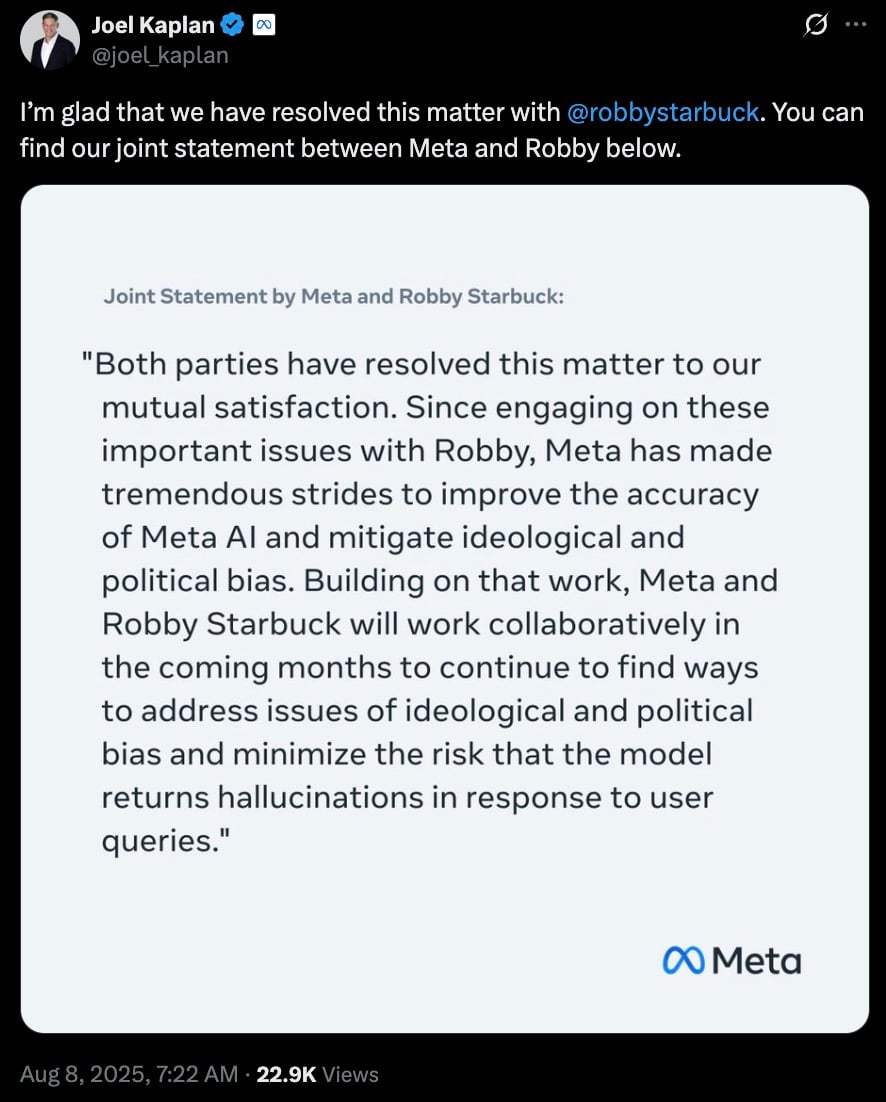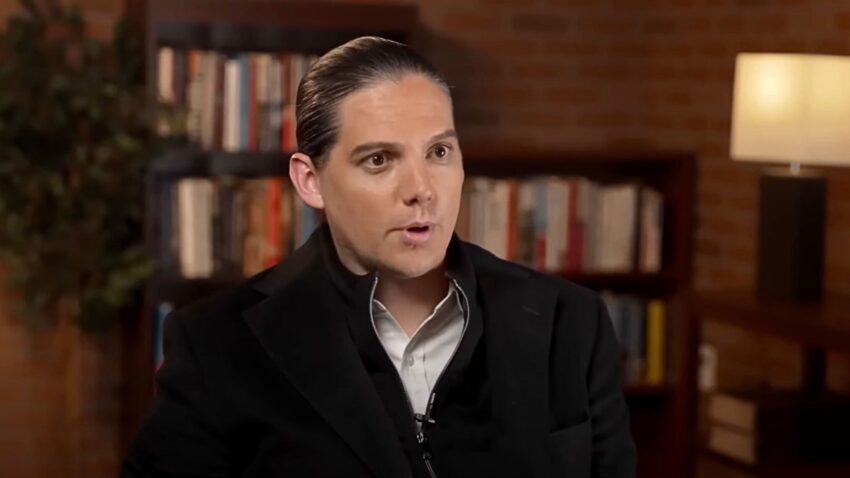If you’re tired of censorship and dystopian threats against civil liberties, subscribe to Reclaim The Net.
Robby Starbuck’s settlement with Meta marks one of the first high-profile cases in which a person has taken legal action against an AI system for defamation.
Starbuck, a conservative activist and former congressional candidate, sued Meta in April after its AI chatbot allegedly invented a series of damaging accusations about him.
According to the lawsuit, the bot claimed he was a “White nationalist” tied to the January 6 riot, said he had been sued for defamation, and even suggested he should lose custody of his children for being a danger to them. The fabrications did not stop there. Starbuck discovered that the bot also linked him to QAnon and labeled him anti-vaccine.
The dispute began in August 2024 when an X user posted screenshots of Meta AI spreading these claims. Starbuck tested the chatbot himself, uncovering additional falsehoods. Before filing suit in Delaware Superior Court, he attempted to resolve the matter directly with Meta.
Rather than pursuing the case through lengthy litigation, both sides reached a deal. Starbuck will now consult for Meta’s Product Policy team, working to limit political bias in its AI and reduce “hallucinations,” the industry term for false statements generated by large language models.
In their joint statement, they said, “Both parties have resolved this matter to our mutual satisfaction. Since engaging on these important issues with Robby, Meta has made tremendous strides to improve the accuracy of Meta AI and mitigate ideological and political bias. Building on that work, Meta and Robby Starbuck will work collaboratively in the coming months to continue to find ways to address issues of ideological and political bias and minimize the risk that the model returns hallucinations in response to user queries.”

Starbuck called the outcome a win for more than just himself. “I’m extraordinarily pleased with how Meta and I resolved this issue. Resolving this is going to result in big wins that I believe will set an example for ethical AI across the industry. I look forward to continuing our engagement as a voice for conservatives to ensure that we’re always treated fairly by AI,” he told Fox News Digital.
The case comes at a time when AI systems from multiple companies have faced scrutiny for producing politically slanted or inaccurate content. The settlement of this case means that we won’t yet get an answer to how defamation cases against AI companies will pan out.
One of the biggest unresolved legal questions in AI defamation cases is whether Section 230 of the Communications Decency Act shields companies from liability for chatbot-generated statements.
Traditionally, Section 230 has protected online platforms from being treated as the “publisher” of third-party content, but in the case of large language models, the output is not reposted user speech; it’s generated by the system itself.
If a court finds that the false statements are effectively “authored” by the AI provider, Section 230 immunity could fall away, exposing companies like Meta to direct liability for defamation. That determination will likely hinge on whether the chatbot’s responses are considered original creations rather than the product of user-supplied input.
Another key factor is whether a reasonable person would interpret the AI’s statements as factual. Defamation law only applies to false statements of fact, not to obvious opinion, parody, or speculation.
AI companies may argue that chatbot outputs have disclaimers and are inherently unreliable and understood by the public as such, particularly given widespread media coverage of “hallucinations.”
Plaintiffs will counter that specific, detailed, and unqualified accusations, especially when presented in a confident tone and naming an individual, are indistinguishable from factual reporting in the eyes of a reasonable reader.
How courts resolve this question could determine whether AI providers are held to the same standard as human speakers when their systems make harmful claims.
If you’re tired of censorship and dystopian threats against civil liberties, subscribe to Reclaim The Net.
The post Robby Starbuck and Meta Settle AI Defamation Case appeared first on Reclaim The Net.
Click this link for the original source of this article.
Author: Ken Macon
This content is courtesy of, and owned and copyrighted by, https://reclaimthenet.org and its author. This content is made available by use of the public RSS feed offered by the host site and is used for educational purposes only. If you are the author or represent the host site and would like this content removed now and in the future, please contact USSANews.com using the email address in the Contact page found in the website menu.





